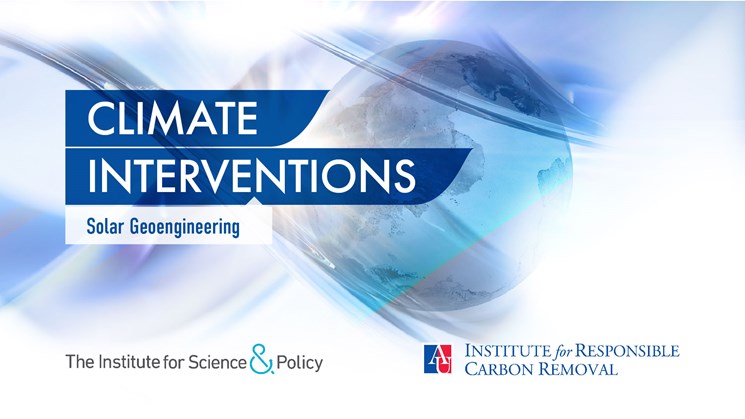Climate Interventions: Solar Geoengineering
Time: 8:30 AM to 10:00 AM
Climate Interventions: Solar Geoengineering
Hosted by
The Institute for Science & Policy
In partnership with
The Institute for Responsible Carbon Removal
In our three-part Climate Interventions series, we look at the scientific understanding and uncertainties around a range of interventions to reduce greenhouse gas emissions and cool the planet, along with a robust discussion on ethics, risks, and governance.
In this session, we explored solar geoengineering approaches, also known as solar radiation modification/management (SRM), which seek to cool the planet by reflecting some of the incoming energy back to space. To date, most of the research approaches have been restricted to computer modeling. Some proponents, however, are looking to field experiments, and perhaps ultimately, wide-scale deployment. While some options might help ameliorate the impacts of climate change, they also might pose serious risks. Our panel of experts discuss the latest deliberations around research, governance, impacts, and more.
Featuring:
Wil Burns, Co-Director, The Institute for Responsible Carbon Removal, American University & Visiting Professor, Environmental Policy & Culture Program, Northwestern University
Lisa Dilling, Assistant Chief Scientist, Environmental Defense Fund
Shuchi Talati, Founder & Executive Director, The Alliance for Just Deliberation on Solar Geoengineering
Moderated by Kristan Uhlenbrock, Executive Director, The Institute for Science & Policy
###
The Institute for Science & Policy at the Denver Museum of Nature & Science is a non-partisan, policy-neutral convener and honest broker working across divides to help solve our most complex statewide, national, and global challenges.
The Institute for Responsible Carbon Removal is a research center in the School of International Service at American University, Washington DC. Its mission is to build ways of doing carbon removal that are responsible, democratic, just, and equitable.

